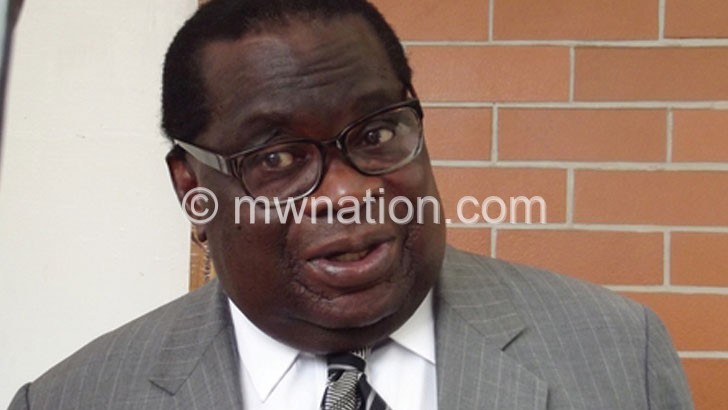Domestic debt puts Malawi under stress—World Bank
Mounting domestic debts, although manageable, put the country at risk of plunging deeper into poverty as more pro-poor resources will go towards debt servicing, the World Bank has warned.
Malawi’s domestic debt has soared, forcing government to spend about K149 billion this year to service it.

The appetite to borrow has not yet been whetted. In the past six months, this fiscal year, government has borrowed K25.1 billion locally despite an improvement in fiscal deficits.
Government is also burdened by outstanding private sector arrears of K155 billion dating back to June 2014.
Presenting his Mid-Year Budget Review Statement in Parliament last Friday, Minister of Finance, Economic Planning and Development Goodall Gondwe acknowledged the pressures that domestic debt and arrears place on the budget.
Said Gondwe: “The high payments of interest on domestic debt is likely to continue for the next three years as maturing zero coupon promissory notes are being converted into interest bearing securities and as the necessary conversions from low interest securities to high interest securities due to market dynamics are also being conducted.”
“If the payments of these were to be made from the budget that time, it would have paralysed government operations. Therefore, this government decided to agree with creditors to accept payment in the form of promissory notes of one to three year maturity, which would be neutral on interest payments.

“Therefore, between the 2014/15 and 2015/16 financial years, it was possible to operate without relatively large interest payments. However, these promissory notes will be maturing over a period of three years. It is planned that, on maturity the promissory notes should be converted into interest bearing securities such as Treasury bills,” explained Gondwe in his statement.
He also acknowledged a threat that the arrears pose to the economy saying they will “crowd-out some vital but non-statutory expenditure.”
Social commentators and economists now fear Malawi’s debts might have reached Heavily Indebted Poor Countries (Hipc) levels, an assumption the Ministry of Finance shot down yesterday.
“Before Hipc [debt relief], Malawi’s external debt was at $2.5 billion and at the moment our external debt is at $1.9 billion. This means, therefore, that our debt level has not reached pre-debt relief level.
“In fact, the impact of debt on the economy changes with the level of gross domestic product [GDP]. Our GDP is higher now as was the case during the pre-debt relief period,” said Alfred Kutengule, the ministry’s spokesperson in an e-mail response.
But responding to Weekend Nation questionnaire on Malawi’s mounting debts, World Bank country manager Laura Kullenberg said the challenge for Malawi is that unlike external debt which can be written off, domestic debt is unlikely to ever see relief.
Said Kullenberg: “Malawi received substantial external debt relief in 2006 under the Hipc and MDRI [Multilateral Debt Relief Initiatives]. Since that time, debt levels have indeed risen. Borrowing for investment purposes can be a prudent way to achieve sustainable economic growth and poverty reduction.
“Malawi’s current debt burden remains manageable, however, it is rapid growth in domestic debt—rather than external debt—that is beginning to place the country under stress. Domestic debt is unlikely to ever see relief.”
She said the challenge here is for government to carefully manage public expenditure in a way that progressively sees a reduced deficit and, therefore, reduced recourse to costly domestic borrowing.
Kullenberg said the bank, however, regularly undertakes with the IMF to analyse the sustainability of Malawi’s debt stock.
“Borrowing is not necessarily a bad thing, if the terms are right and if the proceeds are invested in areas that will help support faster economic growth and sustainable development—rather than say for consumption purposes.
“Malawi has significant financing needs and so borrowing is an important part of the mix of resources used to invest in areas such as agriculture, irrigation, power generation to name just a few,” she explained.
Chancellor College economics professor Ben Kaluwa said it is worrying that government is putting Malawi on debt stress again. He said the problem has been overspending and wastage.
On his part, political commentator Boniface Dulani said high domestic debt only reflects Malawi Government’s appetite to spend money that it does not have.





